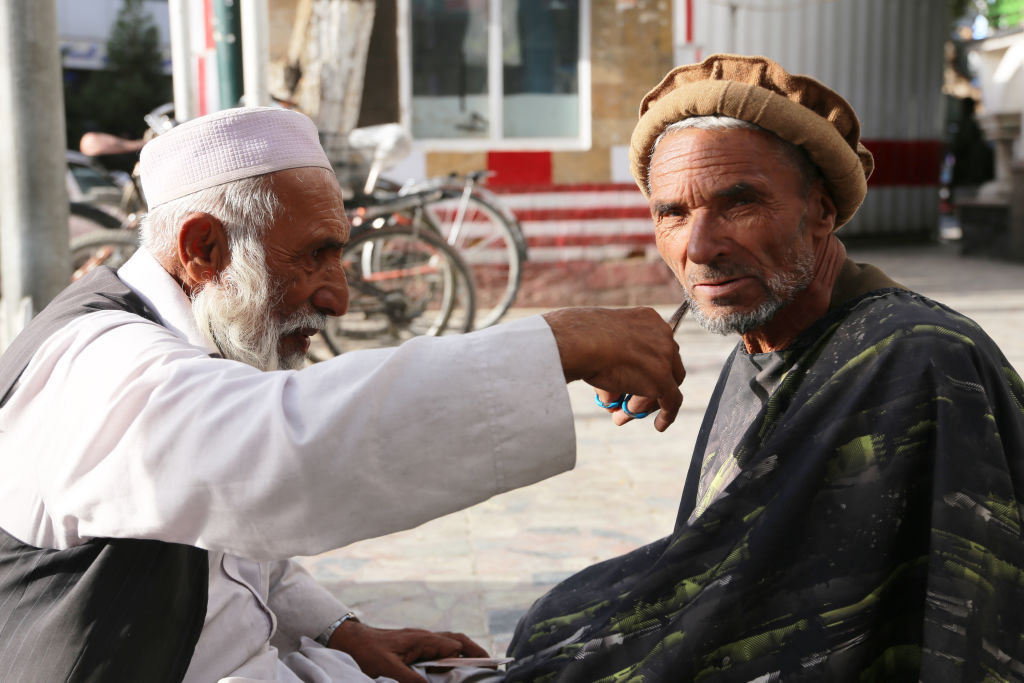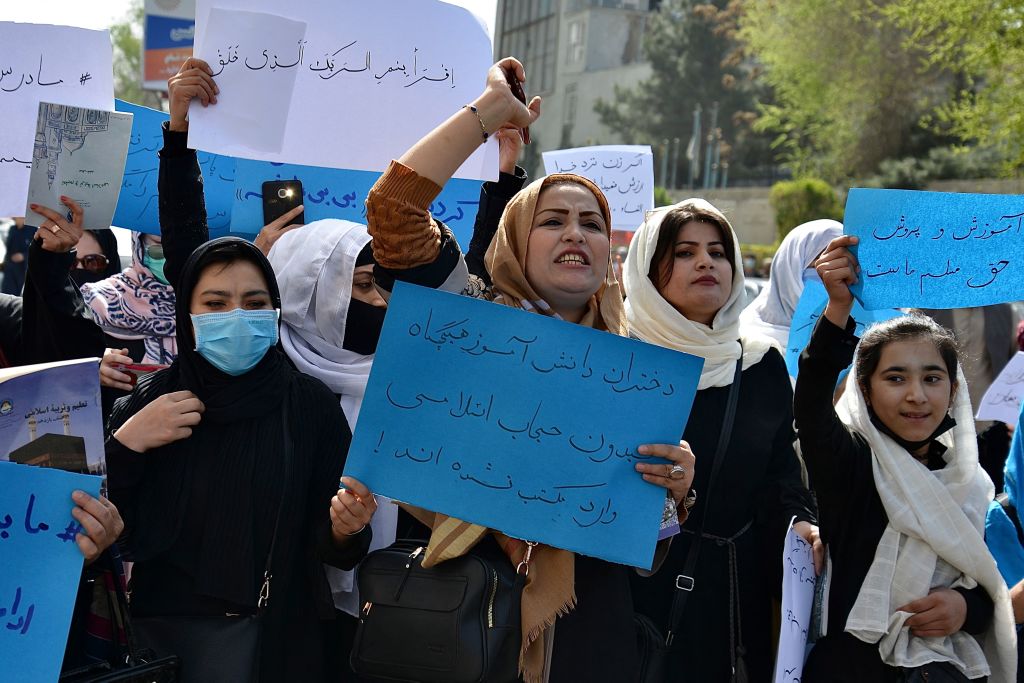The Taliban have issued even more restrictive edicts in Afghanistan, after recent news that the all-male government would prevent girls from attending school after Grade 6, and that women would be disallowed from boarding flights without male chaperones.

After the U.S. and NATO evacuated their troops from Afghanistan in mid-August and the country slipped back under Taliban control, the international community has waited to see if this new government would revert back to how the Taliban ruled in the late 1990s. Those days saw women banned from education and public spaces, and the prohibition of music, television and many sports.
These latest attacks on women’s rights are adding weight to fears of a return to 1990s-style rule, especially since the Taliban had initially promised that women’s education would be protected.
The newest actions from the Taliban include segregating parks, restricting men’s grooming, and limiting access to international media.
Parks to be segregated
In an official announcement on Sunday, all parks in Afghanistan will be segregated by sex thanks to new orders from the Taliban’s Ministry for the Promotion of Virtue and Prevention of Vice.
The letter that introduced the measure explained that women will be allowed to visit parks three days out of the week, with men being permitted on the other four days.
- Canadians urged to leave parts of Middle East as conflict risk grows: Anand
- Florida man pulled free after getting stuck in ‘quick sand’ like mud for days
- ‘I did nothing wrong’: Bill Clinton testifies in Epstein investigation
- Cargo plane carrying money crashes in Bolivia, killing at least 15 people, official says
These new rules mean that even families with children won’t be able to enjoy parks together. Neither will couples, colleagues, or friends — unless they’re of the same sex.
Restrictions on beard trimming
Male government workers must sport a full beard to work or risk losing their job, according to new practices demanded by the Taliban’s Ministry for the Promotion of Virtue and Prevention of Vice.

Get breaking National news
On Sunday, employees of various government ministries were barred from work because they had trimmed their beards or were not wearing appropriate clothing in accordance with the Taliban’s interpretation of Islamic law.
A spokesperson for the Ministry for the Promotion of Virtue and Prevention of Vice confirmed the actions, saying that to continue working, government staff were notified a month ago that male workers needed to have a full beard and women, a hijab.
“Employees of the Ministry of Promotion of Vice and Virtue ombudsmen went to some departments following the order. Still, some employees did not pay attention to the instruction and were stopped for advising,” the ministry spokesman said.
Muhammed Sheer, a government worker in Kabul, told CBS News that he was turned away from work because he had trimmed his beard.
“The Ministry for the Promotion of Virtue and Prevention of Vice people stopped us for a couple of hours and warned us that you should come with a long beard next time, or risk losing your job,” Sheer said.
International media blocked
The U.S. State Department has found that the Taliban are blocking broadcasts from Western media outlets, including the BBC, the Voice of America, and Germany’s Deutsche Welle.
The UN is calling the move “another repressive step against the people of Afghanistan.”
According to Tarik Kafala, head of languages for the BBC World Services, “More than six million Afghans consume the BBC’s independent and impartial journalism on TV every week and it is crucial they are not denied access to it in the future.”
(The BBC broadcasts in Pashto and Persian, the two languages of Afghanistan.)
The U.S. State Department condemned these latest restrictions on basic freedoms, saying it is “clear the Taliban are not living up to the essential commitments they made to the Afghan people and the international community.”
Who is responsible for these new rules?
AP News talked to senior Taliban officials and found that these new measures came out of a three-day meeting last week with Taliban leader Haibatullah Akhundzada. The meeting took place in Kandahar, where the supreme leader lives. Kandahar is considered the birthplace of the Taliban.
According to those officials, Akhundzada is the one behind the country’s latest restrictive moves — and those who know the leader say he is not worried by international outrage or complaints from Afghans.
In late March, the Taliban promised it would reopen schools to girls above Grade 6. Reportedly, Akhundzada was also the one to veto that decision. On March 23, the government officially reneged on its promise, triggering protests in Kabul.
In response, the U.S. government cancelled talks meant to address economic issues with the Afghan government, saying that restricting girls’ education would “profoundly harm Afghanistan’s prospects for social cohesion and economic growth, its ambition to become a respected member in the community of nations, and the willingness of Afghans to return from overseas.”












Comments
Want to discuss? Please read our Commenting Policy first.